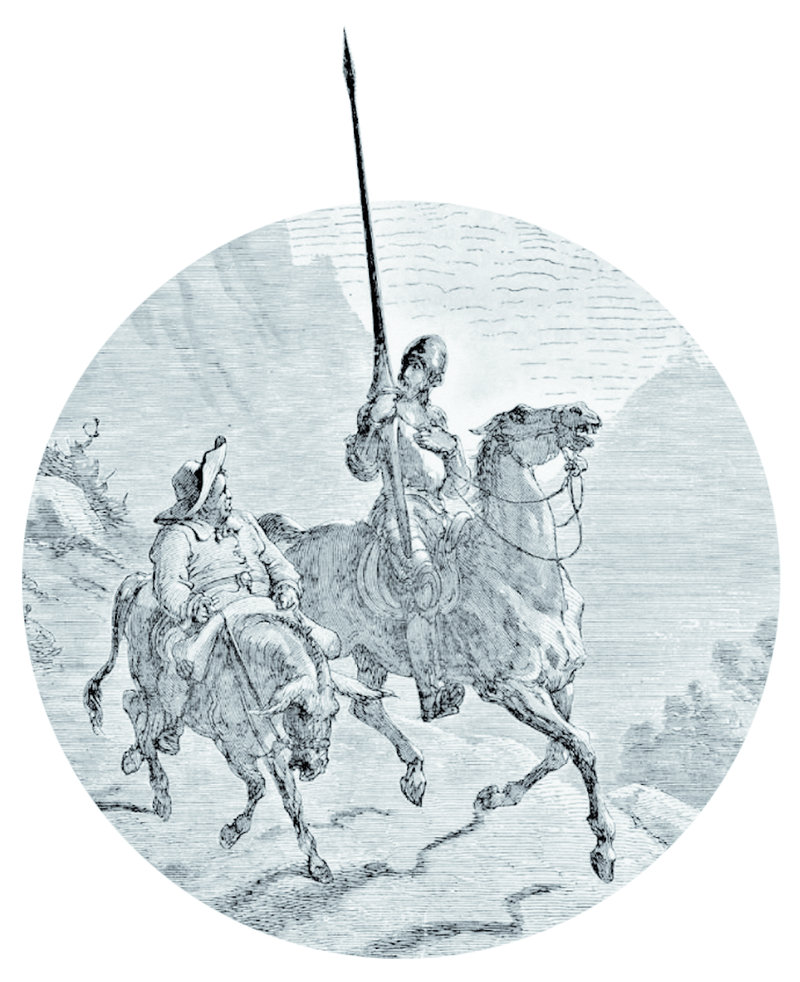'Every man is the son of his own works'
This quote from one of the greatest novels in European literature defines a writer who has become a global icon and the father of an entire language and culture, Miguel de Cervantes
He is a global cultural icon and among Europe's all-time greatest writers. His work is taught in educational establishments the world over and this year is the 400th anniversary of his death. No, it is not Shakespeare, but Cervantes.
Every language and culture has its greatest writer: Shakespeare in English, Goethe in German, Ibsen in Norwegian, Dante in Italian, and for Spanish it is no doubt doubt Cervantes. In fact, so much so that the phrase “the language of Cervantes” has become a euphemism for Spanish.
Born in 1547, Miguel de Cervantes was a contemporary of Shakespeare's and –credibly when we remember the standing each writer has in their respective countries and cultures– died only 24 hours before the Bard of Avon, on April 22 1616.
Don Quixote
Cervantes left behind a considerable literary legacy, including plays and poetry, but he is and will likely always be remembered first for a being a pioneer of the European novel, with the “best literary work ever written”, Don Quixote (full title The Ingenious Gentleman Don Quixote of La Mancha).
Published in two volumes (1605, 1615), the story told by Cervantes deals with the bizarre adventures of a petty nobleman, Sr. Alonso Quixano, whose fanatical love of chivalric romances and his fragile grip on sanity lead him to set out as an errant knight, to restore chivalry, right wrongs, and bring justice to the world. He adopts the name Don Quixote de la Mancha and recruits a farmer, Sancho Panza, to be his squire. The interplay of Panza's earthy wit and Don Quixote's fantastical rhetoric produces one of the all-time great partnerships in the history of literature. Apart from ushering the novel form into western literature, Don Quixote has had a major influence on later greater writers, from Alexandre Dumas (The Three Musketeers, 1844) and Mark Twain (Adventures of Huckleberry Finn, 1884) to Edmond Rostand (Cyrano de Bergerac 1897). It also gave us the word “quixotic”, meaning “unrealistically idealistic”.
Commemoration
Despite a slow start, the Spanish authorities have come up with a cultural programme of more than 250 different activities to celebrate the author, throughout Spain and the year, which began with the opening of the exhibition, Cervantes, de la vida al mito, in the Biblioteca Nacional in Madrid.
Barcelona is also among the places commemorating the anniversary. An example is the musical, El hombre de La Mancha, in the Gran Teatre del Liceu, from August 20 to September 7, while another is a special edition of Cervantes works with a celebratory cover from the the Austral publishers.
For more information on the events, see the anniversary website: 400cervantes.es.
April 23 is “World Book and Copyright Day”, and when you think that both William Shakespeare and Miguel de Cervantes were supposed to have died on that same day in 1616, there is little need to ask why UNESCO chose it to celebrate books and reading around the world. It is now thought that Cervantes actually died on April 22, although even this is misleading, as England and Spain at that time worked according to different calendars. Whatever the case, the two great European writers are linked in the popular imagination and it is true that the literature of the Spanish Golden Age and Elizabethan England have much in common, drawing on similar sources. A great many of those sources are Eastern, and the two periods also introduced a more baroque style of language that broke with classical forms and featured a lot of word play, proverbs and popular refrains. However, what most links the work of these two giant literary icons and something that has sustained their popularity for so many decades all over the world is their universality. As is to be expected from literary geniuses, Shakespeare and Cervantes have a universal message that addresses humankind and helps all of us to understand a little more about our place in the world.




